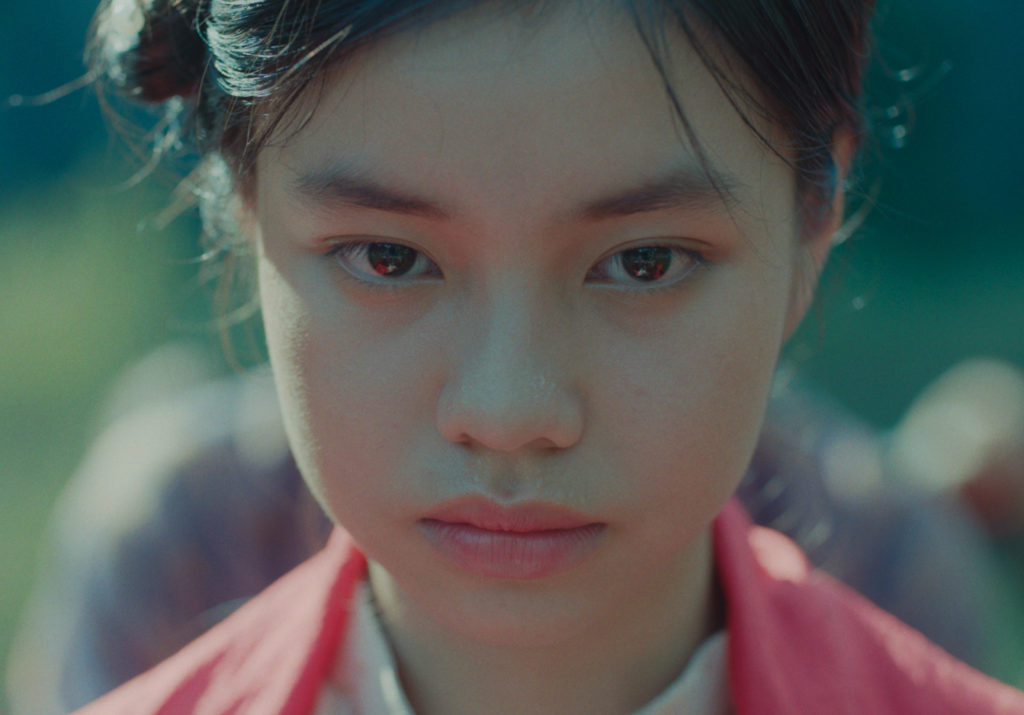In the opening scenes of “The Third Wife,” May (Nguyen Phuong Tra My), a 14-year-old girl, arrives at the Ninh Binh estate in rural Vietnam to be wed to a much older man. As the film’s title would suggest, she is not his first wife, nor his second. Those women are still very much alive and navigating the complex, and at times strenuous, obligations that accompany marriage in 19th century Vietnam.
May learns the law of the land quickly, coming to understand that her role as a wife is to provide her husband Hung (Le Vu Long) with a male child, and that doing so will afford her a degree of status within the household that she currently lacks. Writer-director Ash Mayfair doesn’t focus heavily on May’s relationship with her husband, opting instead to explore the complex dynamic between May and her predecessors, Xuan (Mai Thu Huong Maya) and Ha (Tran Nu Yen Khe). Bathed in serene blues and greens, the film observes the subtleties in the women’s interactions, lingering upon meaningful glances.
Through the relationship that May develops with her fellow wives, as well as with Lien (Lam Thanh My), another young bride married to Hung’s son, she negotiates her own position in this new world. She arrives on the estate as a child, and promptly undergoes an accelerated process of development, complete with sex and pregnancy, as well as a blossoming understanding of her own desires and those of others. As she observes the ways the women who surround her exercise their freedom — albeit in limited ways — May begins pondering whether she can move beyond the role of wife and mother that has been thrust upon her.
In an interview with Women and Hollywood, Mayfair said her own family history inspired the film. “Like many other women in the same period in Vietnam, my great-grandmother and my grandmother had arranged marriages at a young age,” she said. This personal perspective on the issue pushed Mayfair to avoid portraying May as solely a victim, but “rather [as] an emotional being capable of so much more than is expected of her.” Mayfair refuses to paint her protagonist in one tone, opting instead to explore the complicated aspects of womanhood and loss of innocence involved in an arranged, polygamous marriage.
In bringing the film to life, Mayfair remained cognizant of the fact that child marriages continue to this day. “The characters of this story may belong to a distant past, however, their narrative and struggles are very much present in our contemporary society,” she said. Ultimately, “The Third Wife” finds the humanity in this complex issue and pushes viewers to examine their own perceptions of victimhood.
“The Third Wife” has screened at film festivals around the world, racking up a number of nominations, including Best Feature Film at the Milan Film Festival and Audience Award at the Glasgow Film Festival. Mayfair won the Golden Hugo in the New Directors Competition at the Chicago International Film Festival, the Another Look Award at the San Sebastián Film Festival, and the Best Artistic Contribution Award in the International Competition at the Cairo International Film Festival, among several other honors.
Upcoming Screenings
April 18 – Minneapolis St. Paul International Film Festival – Minneapolis, Minnesota
April 25 and May 4 – Filmfest DC – Washington, D.C.
May 15-29 – Film Forum – New York, New York
May 24-30 – Regal Cinemas Garden Grove 16 – Garden Grove, California
May 24-30 – Laemmle Royal – Los Angeles, California
Find more upcoming screenings here.
Published monthly, Under the Radar offers a chance for us to highlight works by and/or about women that haven’t received big releases or significant coverage in the press, but are wholly worthy of attention.
To recommend a title for this feature, please e-mail womenandhollywoodinterns@gmail.com.







